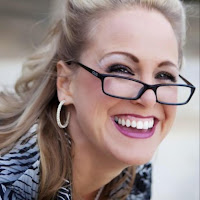Kristen Lamb gives great advice, especially when it comes to the no-man's land of social media, particularly Twitter and Twitter hash tags.
As many of you know, Kristen started the group #MyWANA as a kind of water cooler area for writers to hangout in and get to know one another. If you haven't dropped by yet, what are you waiting for? It's a wonderful virtual community that, now, is relatively spam free although, as Kristen shares in her most recent article, that has not always been the case.
What do we need to know about social media to be successful? Kristen says that the same social rules we learnt in Kindergarden still apply: be considerate.
Kristen's rules for social media success:
"RULE #1 Listening is as Important as Talking—We don’t need to tweet all the time, every hour to be heard."
Tweeting 24 times a day is too much! Of course whether you flood someones twitter account depends on how any people they follow, I try to not send more than 6 general tweets a day.
"RULE #2 You Will Be Graded on Attendance and Participation—NO AUTOMATION, PERIOD"
Kristen writes:
Recently on #MyWANA we had a link-spammer who would not stop spamming #MyWANA. I tweeted nicely and asked her to stop. So did at least a dozen other people. When nice didn’t work, we tried not-nice and tweeted “WHY ARE YOU SPAMMING #MyWANA? STOP!” I even blogged, then blogged AGAIN to make the mission and rules of #MyWANA clear and to gently discourage her behavior."RULE #3 Each of Us Gets One Turn—We only need one identity on Twitter…really."
Still, she kept posting links…and more links…and, yes, even MORE links.
We finally blocked and reported her so much that Twitter shut down her account. What did she do? She opened a new one (or unlocked the reported account) and started link-spamming #MyWANA AGAIN, no matter how many times we told her that #MyWANA was for community.
Why didn’t she listen? Likely because she’d set up automation. Because she wasn’t present, she couldn’t see the fierce hatred we all had for her. Every time we saw her name, we saw red.
When I awoke yesterday to an entire column of tweets from this woman on #MyWANA, I took the fight to Facebook. This got her attention. She apologized and said she was only trying to help writers, that she had a good intentions, and I believe her but:
Good intentions + horrible manners = ticked off followers
If you're a writer and you DO have more than one Twitter account, think about the trade-off you're making. The time spent in setting up and maintaining a second account versus time spent writing.
"RULE #4 Play Well with Others—Follow any #s we regularly use and pay attention to the Mentions column."
Excellent advice! And a great way to find useful articles.
"RULE #5 Remember the Golden Rule—Tweet Unto Others as You Would Have Them Tweet Unto You"
That says it all.
Read Kristen Lamb's entire article here: All We Needed To Know About Social Media Success, We Learned in Kindergarten.
Happy tweeting!
Other articles you might enjoy:
- 19 Ways To Grow Your Twitter Following
- 50 Shades Of Alice In Wonderland: Another Indie Success Story
- Kristen Lamb: Don't Let Trolls Make You Crazy









